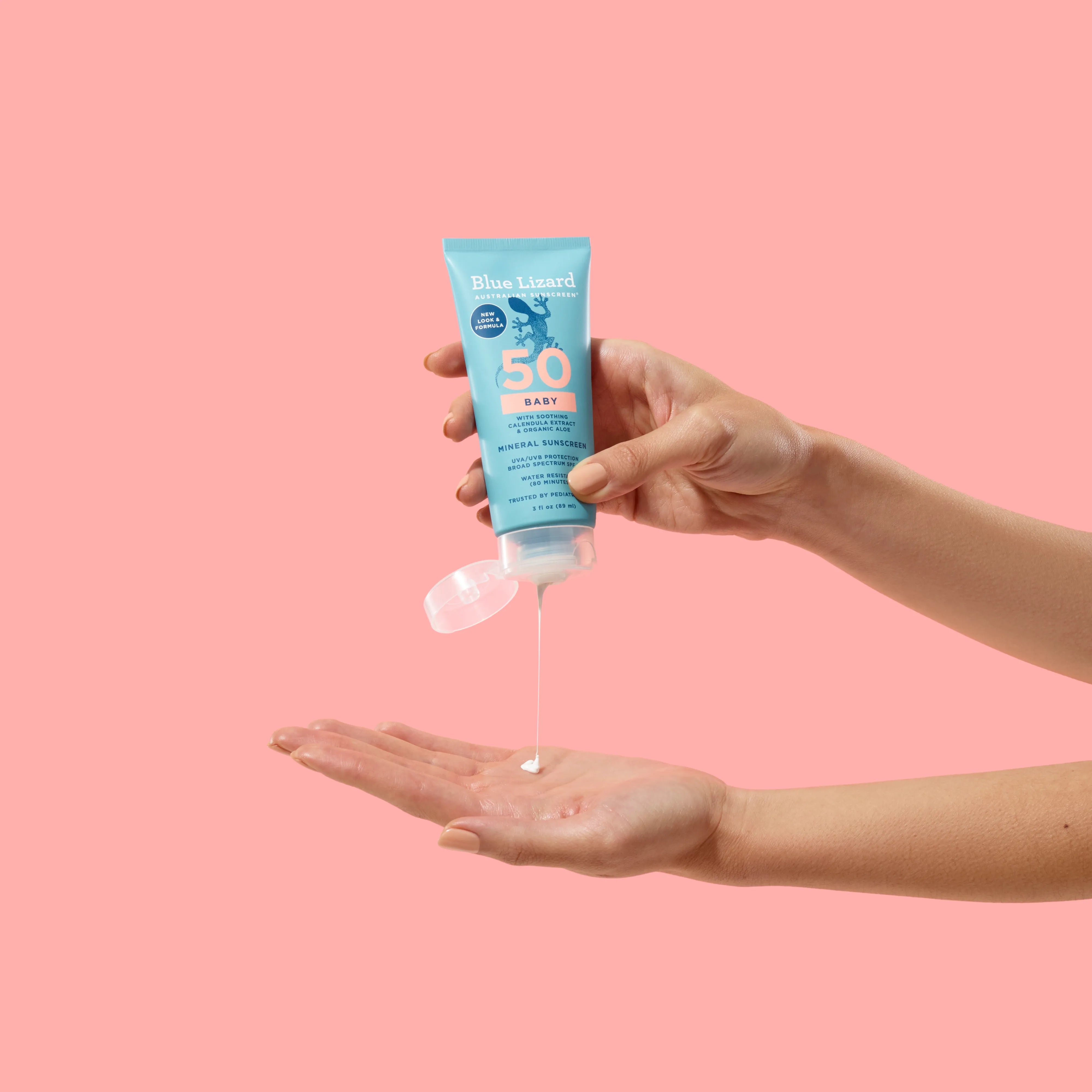Maintaining a smooth, youthful complexion is the goal of most skincare routines, but many people believe they need a specialized serum made from volcanic ash and petals of rainforest flowers that only bloom once every decade.
But the secret to youthful skin isn’t a secret— it’s something you probably have in your medicine cabinet right now: moisturizer and sunscreen.
Does Sunscreen Help Prevent Aging?
Yes, sunscreen can help prevent aging, and there are things you can do to make sure you're getting the most anti-aging benefits out of your sunscreen.
1. Make sure that you're using the right kind of sunscreen. The AAD Suggest using a mineral sunscreen with an SPF of 30+ for optimal protection. You'll also want to make sure that the sunscreen you're using actually has an added moisturizer. You can tell you've got the right sunscreen by simply looking at the label: the SPF will be on the front, and the packaging should list "hydrating" or "moisturizing" as one of the benefits.
2. Apply the right amount of sunscreen. This is where a lot of people mess up. Be sure to use at least one-half of a teaspoon to cover your face and neck.
3. Use it everyday. Not only does daily use of a sunscreen cut your risk of developing skin cancer in half, it makes certain that you're getting the full anti-aging benefits.

How does sunlight cause aging?

There are two main types of UV rays/sunlight: UVA and UVB. UVA rays are called “Aging Rays” because they travel into deeper layers of your skin, where collagen (famous for keeping your skin elastic and youthful) is produced.
Repeated exposure to UVA rays damages your skin’s collagen. In extreme cases, your body’s collagen production can be slowed or stopped altogether. If your body can’t make more collagen and the existing collagen is damaged, your skin loses its elasticity, leading to fine lines and wrinkles. These rays can also pass through clouds, reaching your skin even when it’s not “sunny” out.
How does sunscreen help prevent aging?
Mineral and mineral-based sunscreens—with Zinc Oxide and Titanium Dioxide—naturally protect you from a broad spectrum of sun rays, meaning they protect you from both UVA and UVB rays. They work by forming a layer on top of your skin where they reflect the sun's rays away from your body like thousands of tiny mirrors. Because these rays aren’t reaching your skin, they can’t damage your collagen, so you stay looking younger longer.
Sunscreen + Moisturizers for Anti-Aging
While sunscreen helps prevent fine lines and wrinkles, a moisturizer can help reduce the appearance of any wrinkles you already have. The extra hydration plumps up your skin, reducing the visibility of wrinkles.
You can apply sunscreen and moisturizer separately, or you can get a product that’s both. One of the most effective hydrating ingredients is hyaluronic acid, a natural moisturizer that has received the EWG’s best rating.
What is Hyaluronic Acid?
Don’t let the word “acid” put you off: hyaluronic acid is one of the gentlest ingredients you can put on your skin—and one of the most hydrating. Our bodies naturally produce it, so it’s safe to use on even the most sensitive skin.
Hyaluronic acid hydrates so well because it can carry up to a thousand times its own weight in water. When applied topically, all of that moisture stays in your skin, keeping it plump and smooth.
Antioxidants for Anti-Aging

Caffeine, the same chemical that wakes you up in the morning, is also a powerful antioxidant that can help you stay looking your best. Caffeine’s antioxidant properties slow down the photoaging process, meaning your skin stays smoother longer. Couple this with hydrating hyaluronic acid and the UV protectants in sunscreen, and you have a sound defense against the sun’s aging rays. Antioxidants help combat free-radicals—molecules linked to medical conditions like heart disease—and can help your skin stay youthful.
While all sunscreens have anti-aging benefits, our Sensitive Face sunscreen contains hyaluronic acid and caffeine to provide extra moisture to your skin and Zinc Oxide to provide true broad spectrum protection from the sun’s aging rays.
Check out our Ultimate Sunscreen Dictionary for more facts you need to know about your sunscreen.








